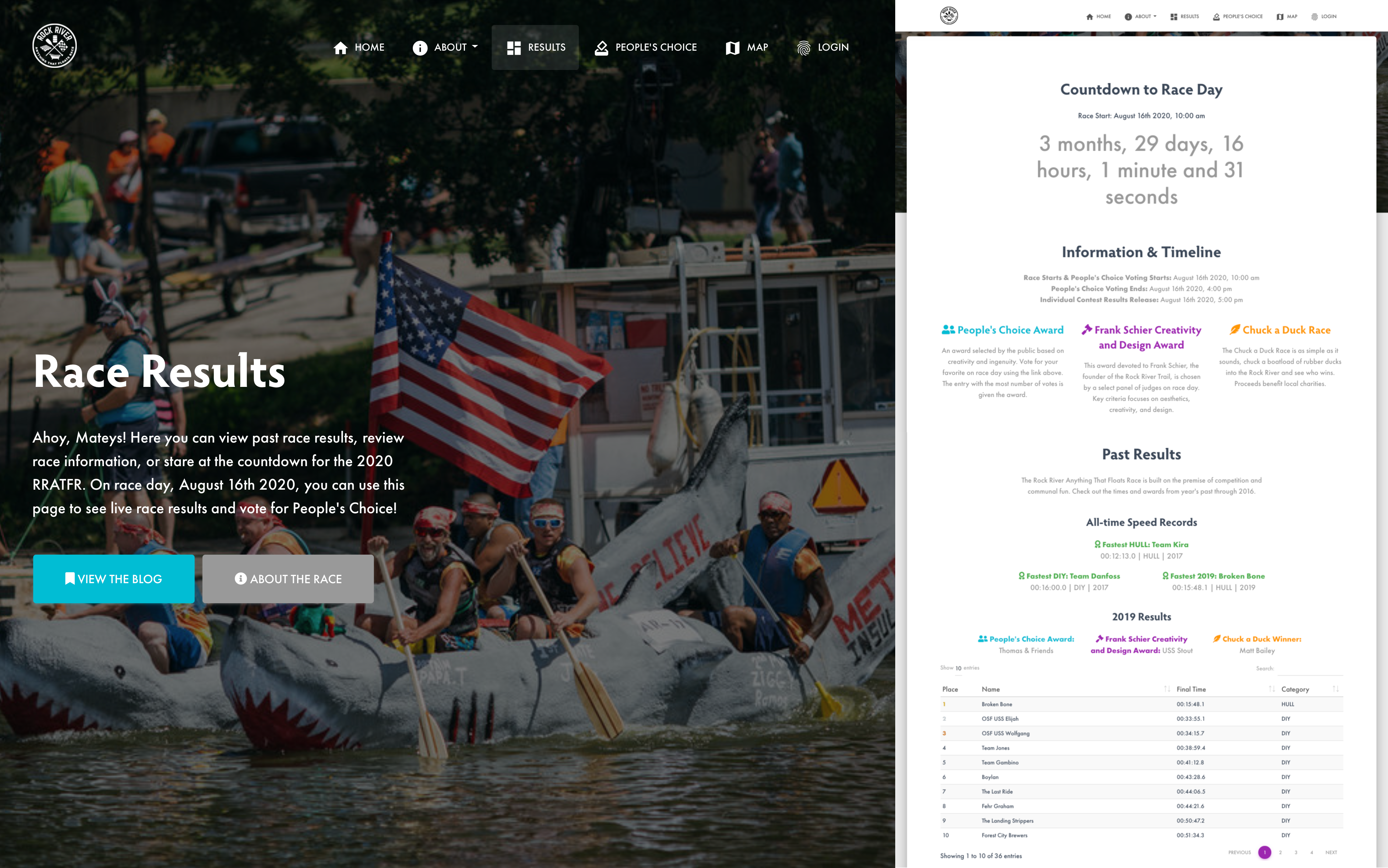Full documentation available at notion.so
This project was created to streamline the organizational efforts of the Rock River Anything That Floats Race. Running on NodeJS, this project displays a powerful web interface where administrators can manage raft information, conduct raft timing, and display results to the public. A smart timing plugin and a custom web voting limiter for the People's Choice Award were both built in-house and from scratch by myself. This manager is now live at rratfr.rakerman.com and has been in use since 2019.
- Clone the repository from github.com
git clone https://github.com/RAK3RMAN/rratfr-manager.git
- Setup RRATFR Manager
- Enter the rratfr-manager folder
cd rratfr-manager
- Install all required packages with root-level access (if needed)
sudo npm install
- Start default application using npm
npm start
- If you want a different broadcast port or mongodb url, you can configure these values by proceeding with the:
- Hardcode option:
- Enter the
sysConfig.jsonfilesudo nano rratfr-manager/config/sysConfig.json
- Edit the
console_portormongodb_urlparameters to your desired configuration
- Enter the
- Hardcode option:
- If any errors occur, please read the logs and attempt to resolve. If resolution cannot be achieved, post in the issues under this project.
- Enter the rratfr-manager folder
- Access web application through
localhost:3000to ensure application is active - Change mongodb_url if needed (steps given above)
- Navigate to the signup page
localhost:3000/signupand enter username and password - You should then be directed to the secret dashboard page, the signup was unsuccessful if you were redirected back to the signup page
- By clicking the logout button or directing to
localhost:3000/logout, you can remove your credentials from the session - Then you can login regularly through the login page at
localhost:3000/login

